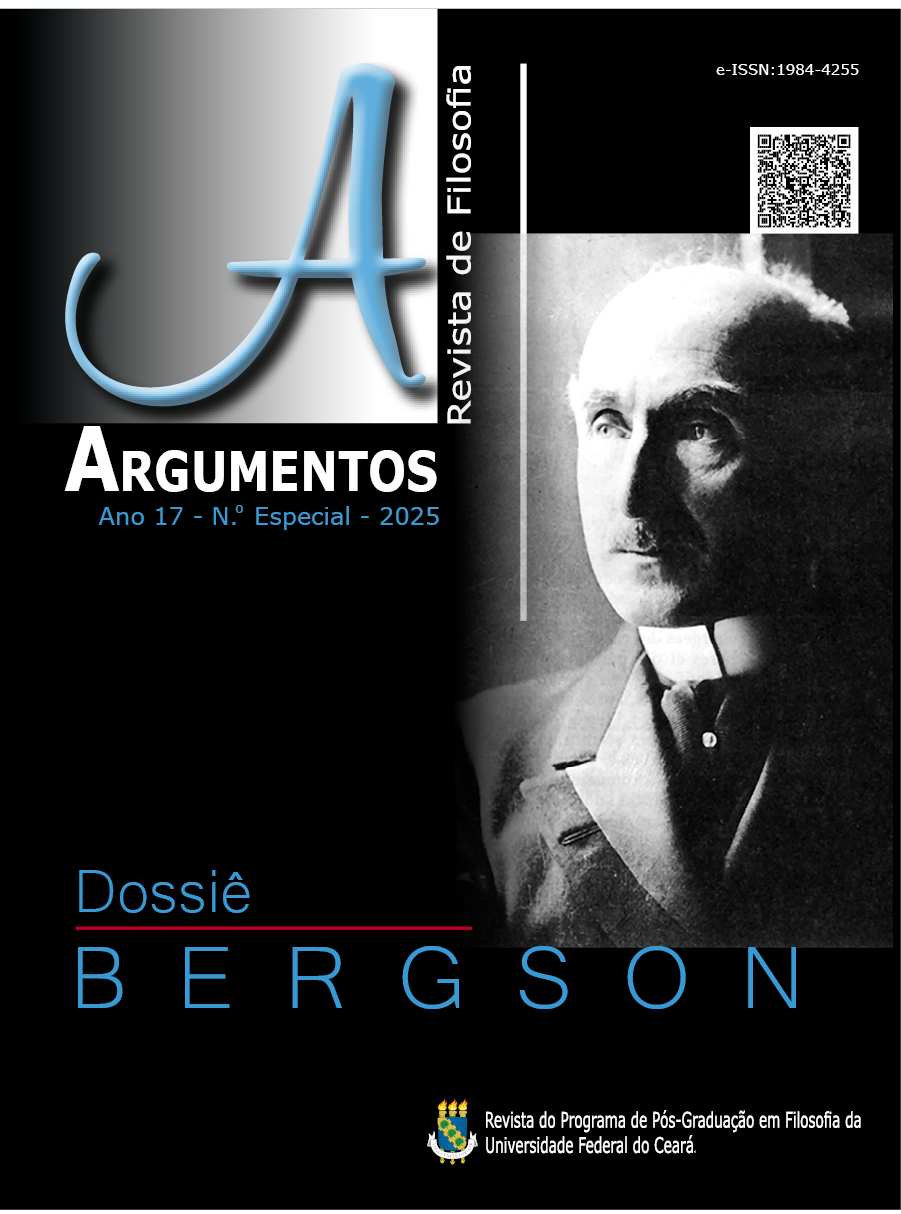On intuition in Bergson: the precedence of duration, the problem and “solution” of language, the role of intelligence
DOI:
https://doi.org/10.36517/arf.v17iespecial.95592Keywords:
Duration. Intuition. Metaphysics. Language. Intelligence.Abstract
We propose, in this article, to present some considerations about Bergson’s method of intuition. To this end, we mainly cover texts from his book on method, Thought and Movement, and certain, very specific moments, from his other books Creative Evolution and Matter and Memory. Our starting point is the thematization of the anteriority of the notion of duration in relation to the method of intuition. Secondly, we highlight two definitions of intuition proposed by Bergson at different moments in his work, as well as the problem of language and its implications for the expression of the content of intuition. Finally, we highlight the relevance and role of intelligence in the exercise of intuition itself, which presupposes the inseparability between the two faculties.
Downloads
References
BERGSON, H. A evolução criadora. São Paulo: Martins Fontes, 2005.
BERGSON, H. La pensée et le mouvant. Edition critique. Paris: PUF, 2013.
BERGSON, H. Matéria e memória. São Paulo: Martins Fontes, 1999.
BERGSON, H. Matière et mémoire. Edition critique. Paris: PUF, 2008.
BERGSON, H. Mélanges. Textes publiés et annotés par André Robinet. Paris: PUF, 1972.
BERGSON, H. O pensamento e o movente. São Paulo: Martins Fontes, 2006.
LAPOUJADE, D. Potências do tempo. São Paulo: Editora N-1, 2017.
LEOPOLDO E SILVA, F. Bergson. Intuição e Discurso Filosófico. São Paulo: Edições Loyola, 1994.
MARQUES, S. T. Ser, tempo e liberdade: as dimensões da ação livre na filosofia de Bergson. São Paulo: Humanitas, 2006.
Downloads
Published
How to Cite
Issue
Section
License
Copyright (c) 2025 Silene Torres Marques

This work is licensed under a Creative Commons Attribution 4.0 International License.
Argumentos magazine is licensed under an International Creative Commons Attribution License.
The Magazine uses CC BY inclusion
1) The authors retain the copyright granted to the magazine or the right to initial publication, with the work regularly licensed under the Creative Commons Attribution, which allows the sharing of the work with acknowledgment of authorship and initial publication in this magazine.
2) The authors are authorized to contract additional applicable contracts, for non-exclusive distribution of the version of the work published in this journal (for example, publication in the institutional repository or as a chapter of the book), recognition of authorship and initial publication in this journal.
3) Authors are authorized and encourage to publish and distribute their work online (for example, in institutional repositories or on their personal pages) at any time before or during the editorial process, as they can generate productive changes, as well as increase the impact and reference of published work.




.jpg)










._._3.png)
1.jpg)
._._._.png)
